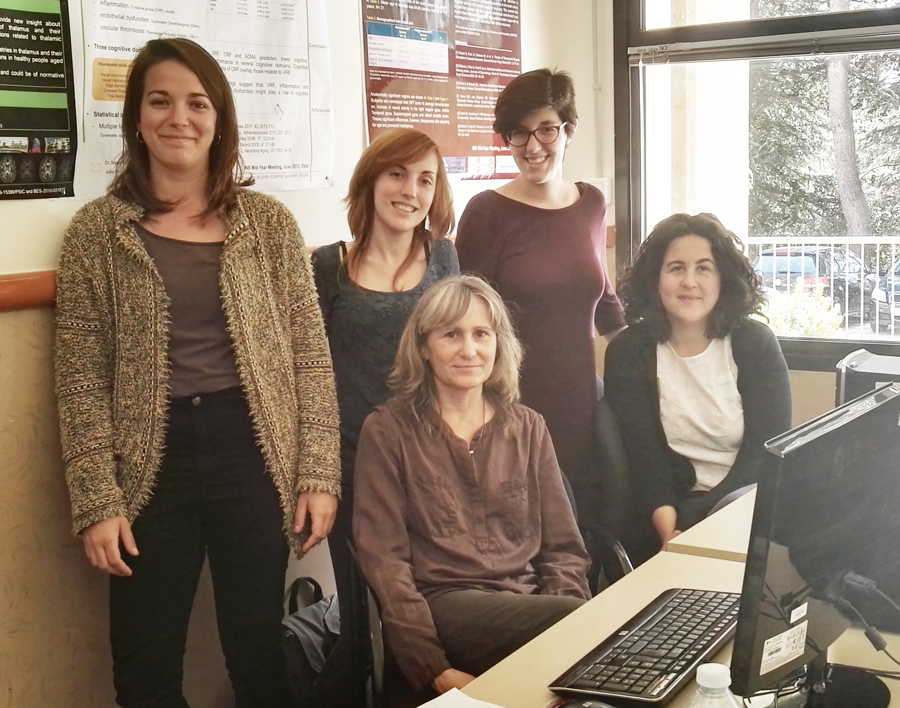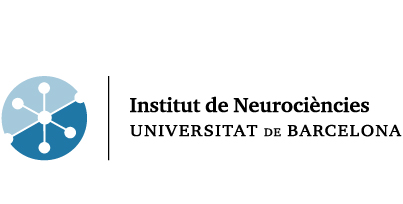
MARIA MATARÓ
Position: Associate Professor
Research team
Juan José Soriano Raya
Associate professor
juan.jose.soriano(at) ub.edu
Alba Castells Sánchez
Early stage researcher
albacastells (at) ub.edu
Noemí Lamonja Vicente
Early stage researcher
noemilamonja (at) ub.edu
Contact details
Dr. Maria Mataró
Department of Clinical Psychology and Psychobiology
Faculty of Psychology, Pg. Vall d’Hebron 171
08035 Barcelona (Spain)
+34 933125052
mmataro (at) ub.edu
Research Interests
Over the last 12 years, our research has focused on cerebrovascular diseases and the neurobiological mechanisms underlying cognitive impairment and its recovery. At present we have an equipped neuroimaging analysis laboratory, a database of cognitive and genetic data with more than 750 healthy people, neuroimaging data from over 150 subjects, as well as an established protocol of recruitment and monitoring of community participants, which allow us to contact to more than 3000 subjects that are currently participating in other vascular related follow up projects (PERART, ASIABarcelona), or to other subjects from the community or clinical settings (tertiary hospitals). We’ve used pathophysiological, neuroimaging and ultrasonographic biomarkers to identify imaging and functional markers related to early stages of vascular cognitive impairment that have provided a better understanding of the neurobiological mechanisms involved in the vascular cognitive decline. In patients with stroke we have identified functional, structural and metabolic changes and related them with cognitive recovery by applying the most up-to-date neuroimaging techniques. The current project studies the neurobiological mechanisms of neuroprotective and non-pharmacological interventions (e.g. exercise and cognitive training) to prevent mental decline and maximize cognitive brain health during the course of the adult lifespan.
Current Research Lines
- Cerebrovascular disease and cognition
- Neuroplasticity
Highlighted publications
· Dacosta-Aguayo R. et al. (2015) Impairment of functional integration of the default mode network correlates with cognitive outcome at three months after stroke. Hum Brain Mapp.
· Soriano-Raya JJ. et al. (2014) Tract-specific fractional anisotropy predicts cognitive outcome in a community sample of middle-aged participants with white matter lesions. J Cereb Blood Flow Metab.
· Dacosta-Aguayo R. et al. (2014) Structural integrity of the contralesional hemisphere predicts cognitive impairment in ischemic stroke at three months. PLoS One.
· Soriano-Raya JJ. et al. (2012) Deep versus periventricular white matter lesions and cognitive function in a community sample of middle-aged participants. J Int Neuropsychol Soc.
· Dacosta-Aguayo R. et al (2014) Prognostic value of changes in resting-state functional connectivity patterns in cognitive recovery after stroke: A 3T fMRI pilot study. Hum Brain Mapp.



